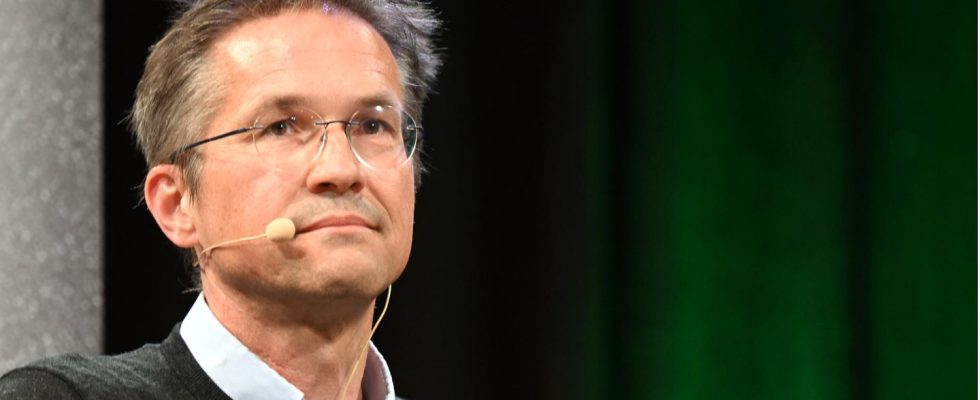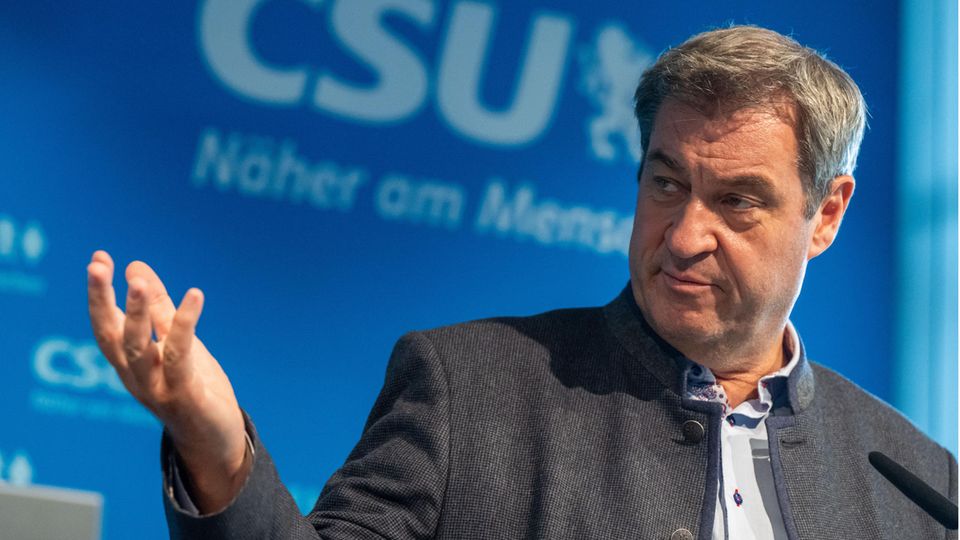Are you following the migration debate? Then you have most likely heard of Gerald Knaus, perhaps the most sought-after expert in his field. Calling someone who is restless.
Can it be done in 20 minutes? Things aren’t working for Gerald Knaus at the moment. Please try again straight away and then he’ll be in a taxi heading to the airport. The migration researcher is currently constantly on the move and always on the phone. You reach him in London on Tuesday afternoon, but he is actually on his way to Austria. Knaus, 53, is in high demand as an expert. At home and abroad, at forums and seminars. Not least among journalists who try to understand the complex topic of migration. And politicians who probably feel the same way.
What should we actually think of stationary border controls? What is the status of the EU asylum law reform? Is the Tunisia deal good? You can ask Knaus all of this without him showing any great effort to give an expert answer. Even if he already has one foot in the security check at London airport. Would you like to talk more later…?
Knaus is currently perhaps what the virologist Christian Drosten was during the corona pandemic. He explains to the Germans the Topic of conversation, irritation and controversy these days, classifies what is happening and could still happen. Whether on the radio, on television or in newspapers. Some days he gives up to 15 interviews, he says, but on less hectic days it’s closer to three or four. Do federal politicians also ask for his advice? It happens again and again, says Knaus.
The number of illegal entries is increasing rapidly; cities, states and municipalities have been complaining for months about an overload in the accommodation and care of refugees. Even the Federal President believes the country is “at its breaking point”. In short: Germany is once again in the middle of the migration debate. And now? First ask Knaus.
What does everyday life as Gerald Knaus look like?
He’s actually a social scientist, says Knaus, and he honestly doesn’t think migration is a separate field of research. On the one hand. On the other hand, he has been researching this for years, trying to combine analyzes and possible solutions to acute problems. Zack: Already declared a migration expert – that’s what it sounds like. As if it was all just a coincidence. Of course not true.
If you will, the political dimension of migration and everything that goes with it – national borders, flight, expulsion – has always played a role in Knaus’ life. Born in Salzburg in 1970, Knaus grew up in Vienna. He studies philosophy, politics and international relations in Oxford, Brussels and Bologna. Works as a tour guide in Yugoslavia, is a lecturer in Ukraine and Bulgaria, works for an authority in Sarajevo on the return of displaced minorities. Places where crises and sometimes war shaped everyday life in the 1990s. Today he lives in Berlin.
In 1999, as a result of the Balkan wars, he and friends founded the non-profit organization “European Stability Initiative” (ESI) in Sarajevo. Self-declared goal, then and now: to consolidate democratic stability after a decade of wars in southeastern Europe. Accordingly, we focus on the issues that endanger this very stability – and migration and flight have been among the big ones since the 1990s, says Knaus. His ESI also deals with the rule of law in Poland, the future of the Council of Europe and the expansion of the European Union. For example.
And what does everyday life as a co-founder and chairman of a think tank look like, beyond the countless interviews that have to be given? So he’s currently on his way to Austria, says Knaus, his ESI has organized a seminar. The topics, among others: migration, defense of the rule of law, the risk of violence in the Balkans. Next week he is traveling to Athens to meet the migration minister. There is an ambassador meeting coming up in Stockholm. And in Paris he took part in a discussion on corruption in the Council of Europe. Knaus travels in the countries he talks about. But it’s not a one-man show, that’s what he values: he has a team of more than ten colleagues who also do research, research and write reports.
Added to this are the numerous conversations with politicians, not just from Germany. He also exchanges ideas with Greek, Dutch, Swedish and Danish politicians. The ESI is not a political consultancy that is financed by the federal government, says Knaus. Regular donors include the Swedish government, Stiftung Mercator or the Robert Bosch Stiftung – funding is often project-related. Every politician and every party can ask for advice free of charge. This in turn allows the ESI to get a feel for debates – and where possible compromises could be emerging. Practical.
Knaus’ assessments of migration policy are not always accurate, but they are always carefully noted. The political consultant is well versed in the material, has written several books on the subject, and is considered to be the source of ideas for the so-called EU refugee deal with Turkey in 2016. Today he still advocates agreements to counter irregular migration. But the crises are not comparable, says Knaus. The current situation todayis politically more dangerous than back then. War in Europe. Right-wing populists in parliaments, including in Germany, who wanted an illiberal Europe. Without NATO and the EU. Plus the unresolved migration crisis. There was a growing sense of crisis in 2015, says Knaus, but today things are more unsettled.
One more quick question, Mr. Knaus: What do you actually do when you’re not in demand as a migration researcher? Then he spends his time with the family, cycling or reading in the coffee house, he says. But now he really has to move on.



